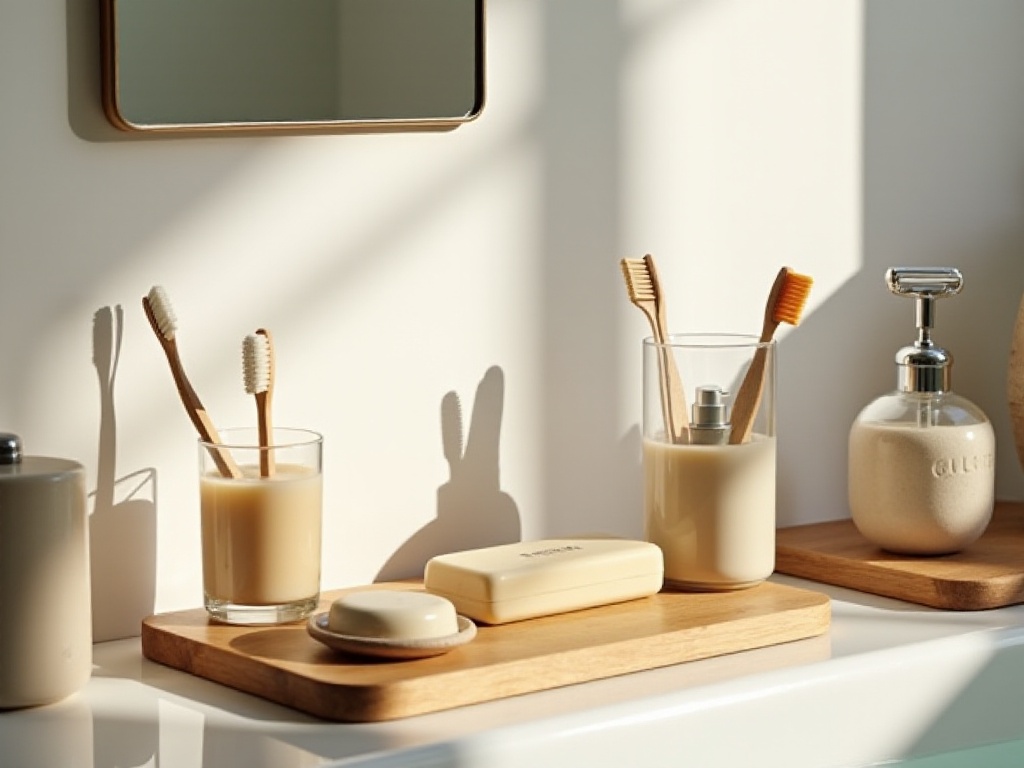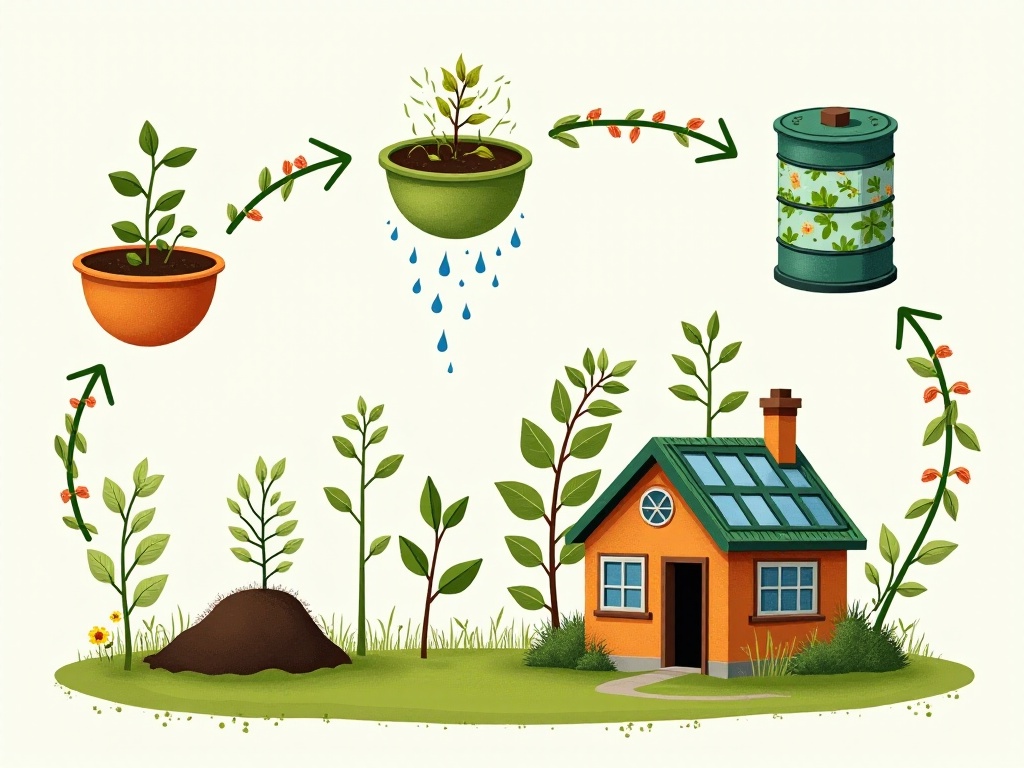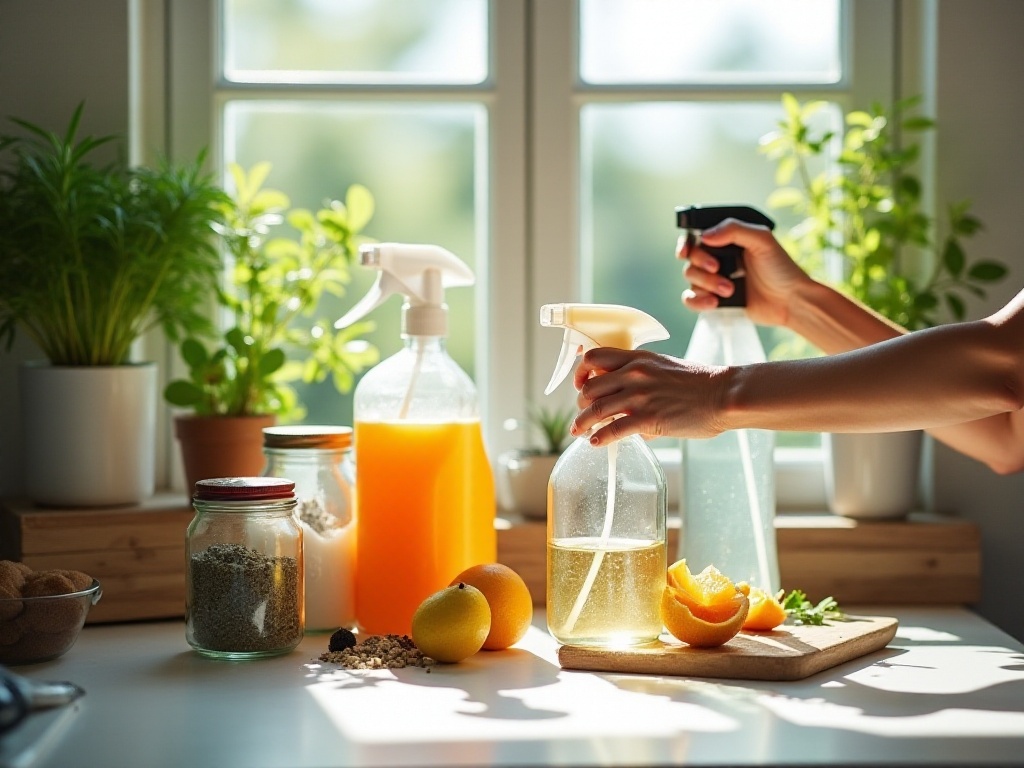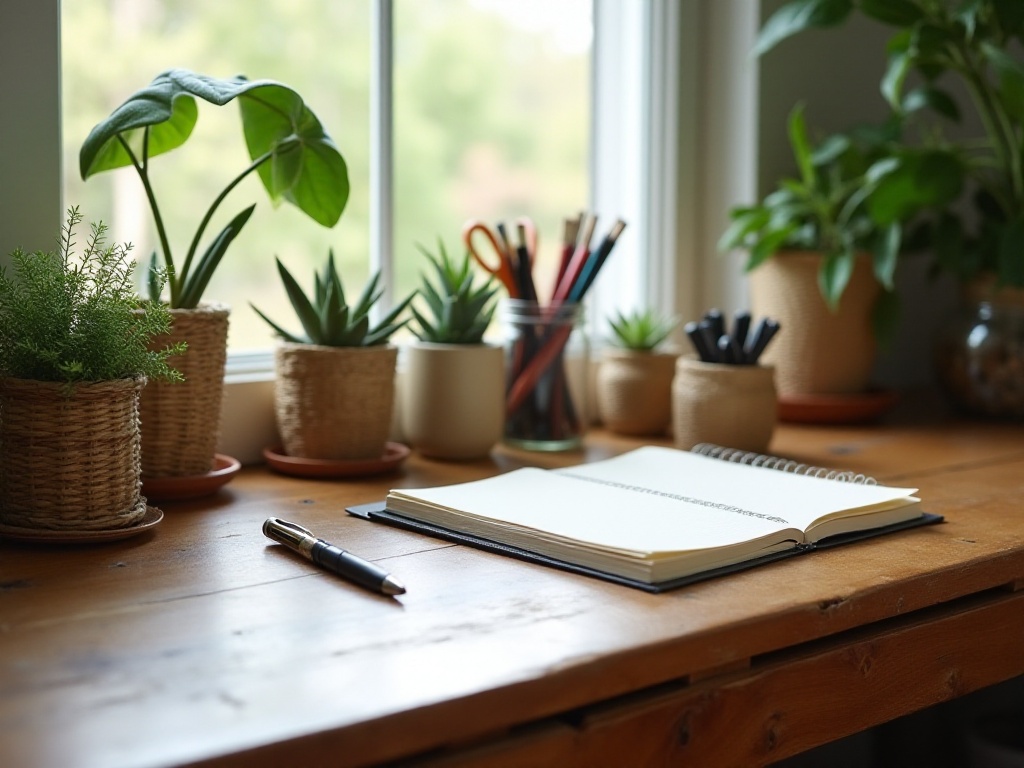I was truly shocked at myself! The other day, I did a "waste audit" - categorizing and counting all the waste I produced in a month. I discovered that plastic packaging alone filled several large bags, delivery boxes could build a castle in my home, and takeout containers were countless. This experience really made me rethink my lifestyle, so I started researching zero-waste living. After practicing for a while, I've gained quite a few practical insights, and today I'd like to share my journey and useful experiences with everyone.
Starting from the Source
Honestly, I never thought before that much of the waste in our lives is actually a consequence of our shopping habits. Take me for example - I was the snack king, especially loving individually packaged snacks, buying seven or eight packs at a time to satisfy my cravings. But recently, when I did the math carefully, I found this not only costs about 30% more but also generates an appalling amount of waste! For the same pound of sunflower seeds, bulk buying needs just one bag, while individual packets use at least five or six small bags.
Looking back now, every decision we make while shopping affects the amount of waste we'll generate later. For instance, I used to love online shopping, wanting to try everything I saw. The result? My home was filled with all kinds of packaging boxes, and many items were forgotten in corners after being used once or twice. So now I particularly focus on asking myself before shopping: "Do I really need this?"
Smart Shopping Methods
After exploring for a while, I've found that bulk shopping is really an excellent choice. To be honest, I initially thought bulk shopping wasn't very hygienic, but later discovered my concerns were completely unnecessary. Now many large supermarkets take great care with their bulk sections, not only having specialized storage equipment but also conducting daily cleaning and disinfection.
I now go to the supermarket weekly with my cloth bags and glass jars. I must say, the first time I shopped this way, I felt quite self-conscious, thinking people would look at me strangely. But in practice, I found that not only do cashiers compliment me on my environmental awareness, but I often meet like-minded people who share their own eco-friendly tips.
Moreover, bulk shopping really saves money. Taking rice as an example, the same Wuchang rice in bulk is about one-third cheaper than vacuum-packed. I used the money saved to buy some reusable shopping bags and storage jars, making my whole life feel more refined.
Snacks can also be bought in bulk. I was amazed when I first saw bulk chocolate beans in the supermarket. Later I discovered that nuts, chocolates, and cookies in the bulk section are not only diverse but just as fresh as packaged ones. Plus, you can buy the amount you need without worrying about buying too much and letting it spoil.
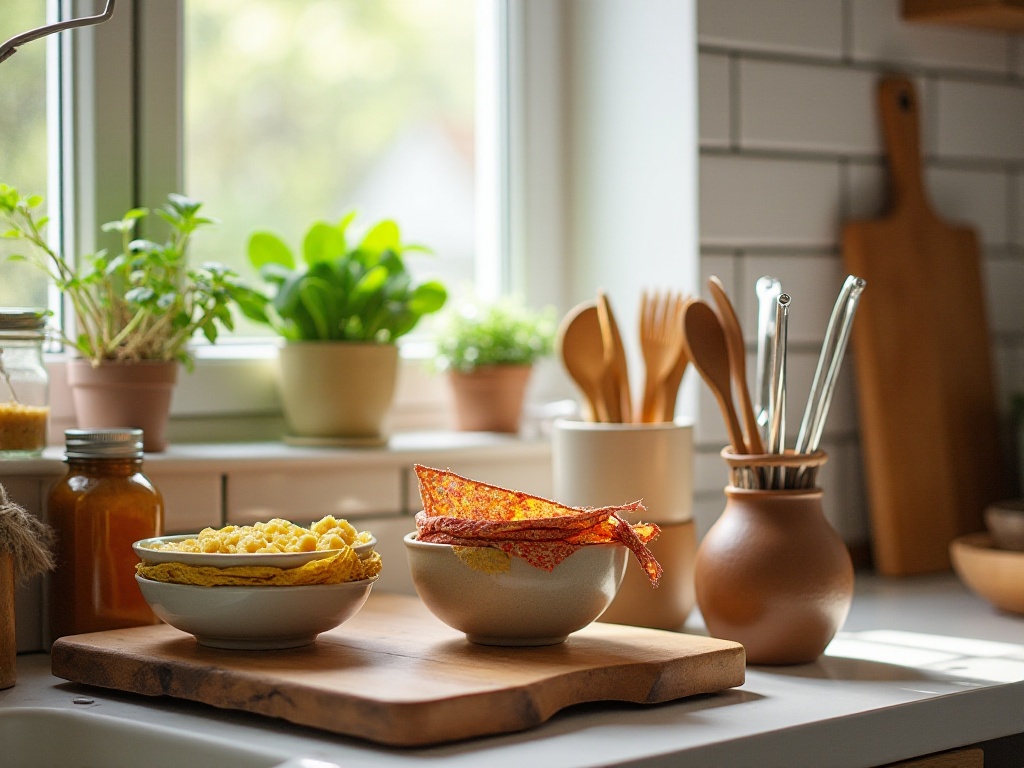
Kitchen Revolution
Speaking of kitchens, they're truly hotspots for waste. Previously, my kitchen was full of disposable items: plastic wrap, aluminum foil, paper towels. After every meal, the trash bin was always full. Now I've replaced these disposable items with reusable alternatives, and the whole kitchen feels renewed.
Let me start with my favorite beeswax wrap. At first, I wasn't used to it, always feeling it wouldn't seal properly. But after using it for a while, I found it's actually much better than plastic wrap. First, it seals very well - fruits and vegetables wrapped in it stay fresh for a particularly long time. Plus, it's washable and reusable. Although beeswax wrap initially costs over 60 yuan, it lasts about a year, making it more economical than buying plastic wrap.
I also switched to glass food containers, which, although more expensive than regular plastic containers, are more durable and safer. Glass containers can go directly into the microwave, eliminating the need to transfer food back and forth, which is very convenient.
In terms of kitchen waste management, I've also tried new approaches. I bought a kitchen waste processor and use processed fruit peels and vegetable leaves as fertilizer for the plants on my balcony. Although it seemed troublesome at first, seeing the plants grow more lush each day brings a great sense of achievement.
Most importantly, developing reasonable shopping habits is key. I now plan a weekly menu on weekends and shop for ingredients accordingly. This not only prevents buying too much and creating waste but also ensures fresh ingredients daily. Sometimes when I see ingredients in the fridge about to expire, I find ways to turn them into new dishes. For example, wilting vegetables can become vegetable soup, and leftover bread can be made into bread pudding. This not only prevents waste but also improves my cooking skills.
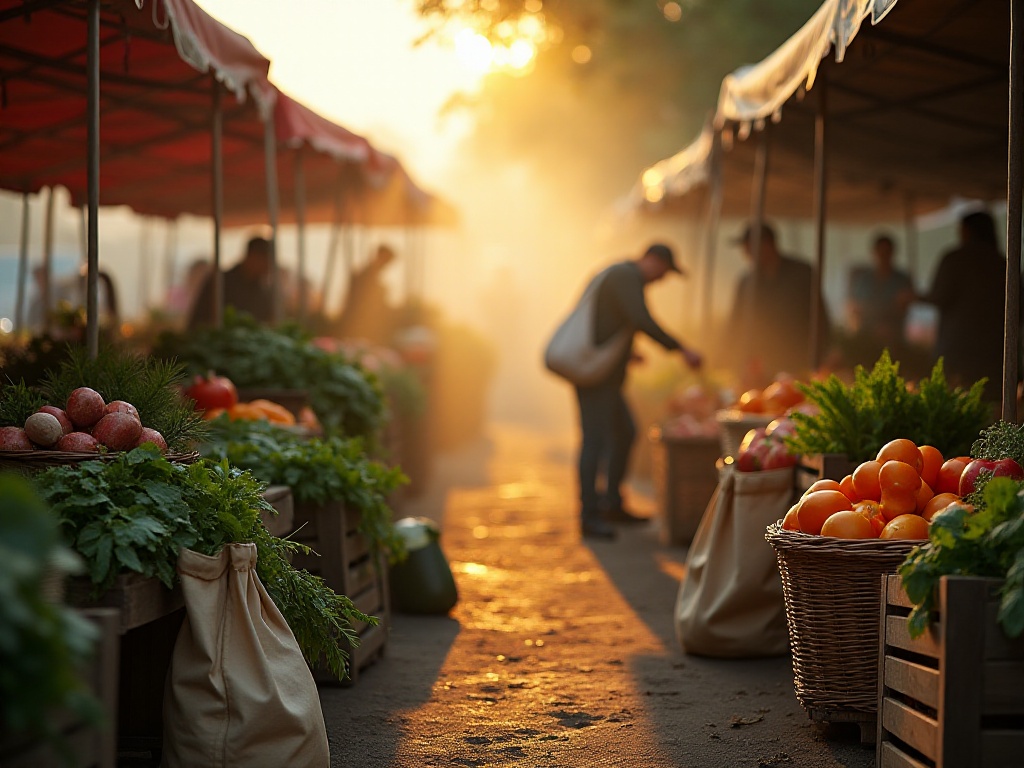
Life Hacks
In personal care, I've also put in considerable effort. Honestly, the changes were quite uncomfortable at first. Take toothbrushes for example - having been used to plastic toothbrushes, switching to bamboo felt strange. But after using it for a while, I found that bamboo toothbrushes not only feel good but have particularly suitable bristle firmness. Most importantly, used bamboo toothbrushes are biodegradable and won't burden the environment.
Razors were another memorable change. I used to use disposable razors, throwing them away after use, which felt particularly wasteful. Later I switched to a traditional metal razor, and although it initially cost over 200 yuan, it only needs blade replacements afterwards, and shaves particularly clean without cuts.
In terms of washing and care products, I've also made many new discoveries. I now use solid shampoo bars, which not only eliminate packaging waste but work particularly well. It might take some getting used to at first, as it doesn't lather as easily as regular shampoo, but after a while, you'll find your hair becomes especially smooth. Plus, one solid shampoo bar lasts a long time, eliminating concerns about waste.
For cosmetics, I also prefer products with replaceable refills. Although the initial purchase might be more expensive, you only need to buy refills afterwards, which is both environmentally friendly and economical. Many brands now also have packaging recycling programs where you can exchange used packaging for points at counters, which feels particularly meaningful.
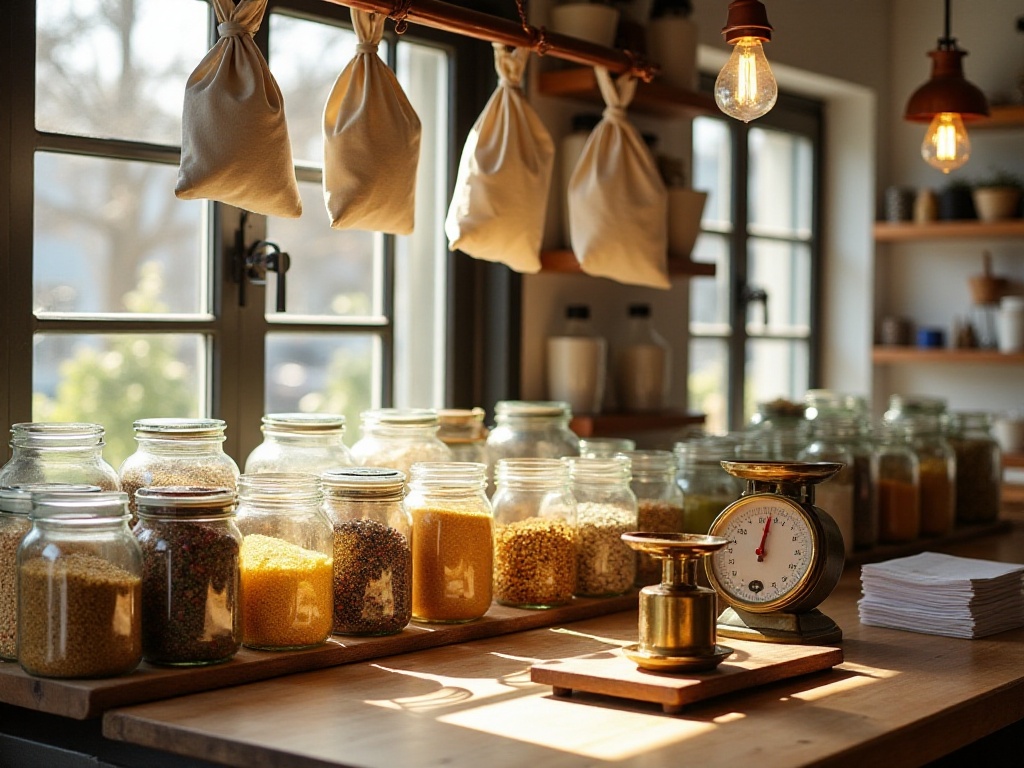
Community Action
What delighted me most was discovering that more and more young people around me are starting to care about zero-waste living. Our community created an idle items exchange group where people share items they no longer need but are still usable. I had been wanting to buy a blender but thought new ones were too expensive. In the group, I exchanged a delivery box for a fully functional blender - although slightly older in model, it completely meets my needs.
Our community has also launched waste sorting and composting projects. Property management set up special compost bins next to the green areas where residents can dispose of kitchen waste. The composted material is used in the community's green spaces, and now the plants and trees in our community are growing particularly lush. This makes me feel that each person's small change, when accumulated, can create a big impact.
Another interesting discovery is that young people in our community organized an environmental book club. We select and discuss an environmental protection-related book each month, sharing our eco-friendly experiences. Through this book club, I've not only learned a lot about environmental protection but also met like-minded friends.
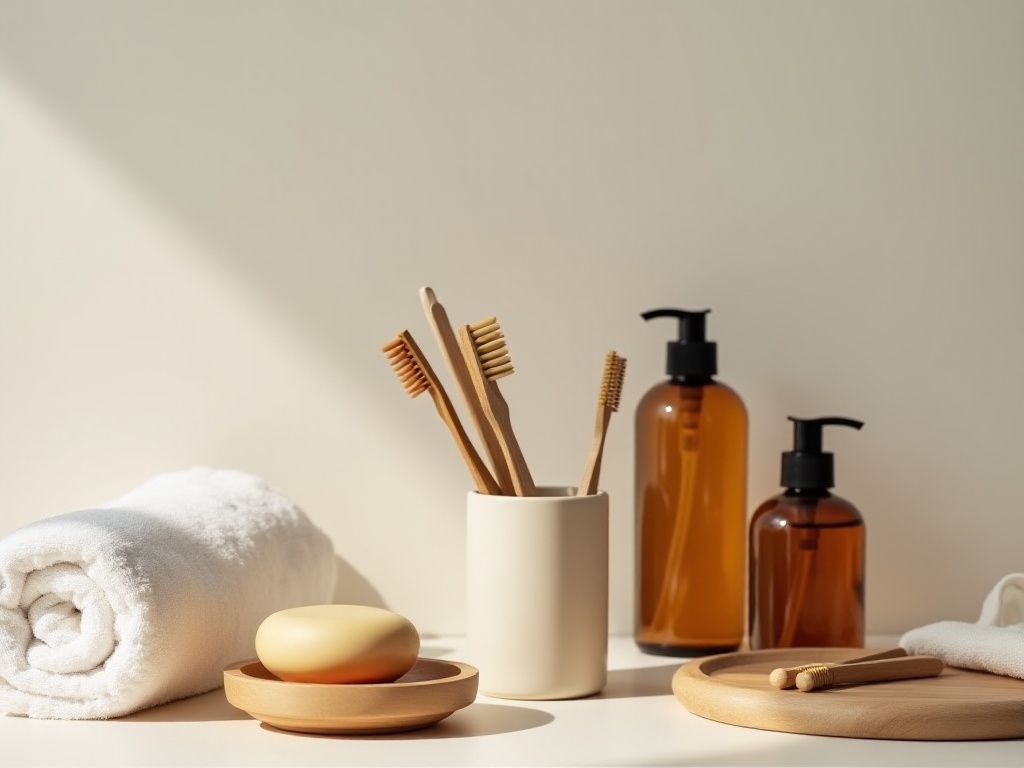
Insights Gained
This period of zero-waste living has given me many insights. I've discovered that zero-waste doesn't mean producing absolutely no garbage, but rather thinking more consciously about our consumption behaviors. Like the waste audit I mentioned earlier, it helped me clearly identify my biggest sources of waste, allowing me to improve specifically.
My shopping habits have also become more rational now. Whenever I want to buy something, I ask myself: Do I really need this? How much waste will its packaging generate? Are there more environmentally friendly alternatives? This way of thinking has not only made my life more environmentally friendly but also saved me quite a bit of money.
Most importantly, I've found that zero-waste living isn't boring at all. On the contrary, it has made my life more interesting and meaningful. Every time I see less waste in my home or meet new friends through community activities, I feel particularly happy.
Actually, change doesn't need to happen overnight. Starting with one small habit and gradually developing environmental awareness, everyone can contribute to environmental protection. If you want to start a zero-waste life, why not begin by changing one small habit? I believe that as time passes, you'll also discover the beauty of zero-waste living.
What do you think is the hardest habit to change in zero-waste living? Or do you have any particularly useful eco-friendly tips? Feel free to share your thoughts and experiences in the comments. Let's work together for the future of our planet!


